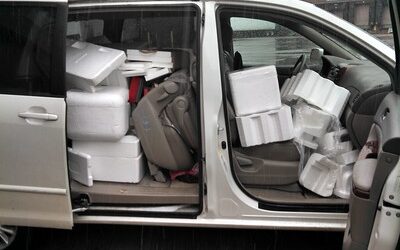The way we eat, cook and clean every day has a profound impact on our environment. Green your kitchen with these simple tips.
REDUCE YOUR ENERGY USE
- Use energy efficient appliances with the Energy Star seal of approval.
- Replace old appliances, especially refrigerators and freezers built since 1993. Find out how much energy and money you can save with this calculator.
- Rethink that second refrigerator or freezer. Did you keep your old unit as a back up when you upgraded? Could you do without it? Or unplug it in between parties or holidays? Or share with a neighbor?
- Consider using an induction burner for most of your cooking.
WATCH WHAT YOU EAT
- Buy local foods. You will eat healthier, help Midwest food growers and reduce your carbon footprint. Every dollar you spend this way supports the new “good food movement.”
- Purchase organic fruits and vegetables when possible and be sure to avoid the “Dirty Dozen” (foods with the highest levels of pesticide residue) and know the “Clean Fifteen” Check it out here.
- Eat less meat. Try eating smaller portions and go meatless at least one day a week. Meat requires substantially more energy and water to produce than fruits and vegetable do. In addition, eating more fruits, vegetables and protein-rich grains and beans is essential to a healthy diet.
- Choose your fish wisely. Some fish contain toxins like mercury, some fish farming methods are harmful to the environment and many fish species are in danger of being over fished. Learn more…
REDUCE YOUR WASTE
- Do not use disposable products. When entertaining, mix and match plates and flatware or borrow from a friend. Rent glassware instead of using disposable cups.
- Bring reusable bags to the grocery store and pay attention to the packaging of the items you buy.
- Compost your fruits and vegetables, eggshells, tea bags, coffee and coffee filters. You will reduce waste and help create great soil for your garden.
- Buy in bulk if possible. This reduces packaging and saves money.
- Use reusable containers instead of paper, plastic, aluminum foil and Styrofoam.
- Take your own container to restaurants for leftovers.
COOK WISELY
- Don’t cook in nonstick pans that may contain chemicals that can leach into your food or air.
- Cook in the smallest appliance possible. Don’t use the oven if a toaster oven will do.
- Cook as efficiently as possible. Use the smallest burner that serves your purposes. Energy is wasted if the burner is bigger than the pot.
- Turn off your oven or burner before you are done. Residual heat will finish the job.
BE SMART WHEN YOU CLEAN
- Use natural, non-toxic cleaning products.
- Clean with rags and towels instead of disposable paper towels and napkins.
- Only run the dishwasher with a full load and use a cycle that doesn’t use heat for drying. Do not use rinse agents.


